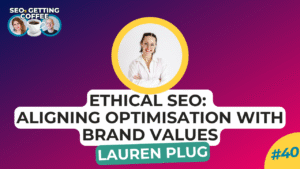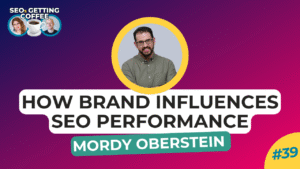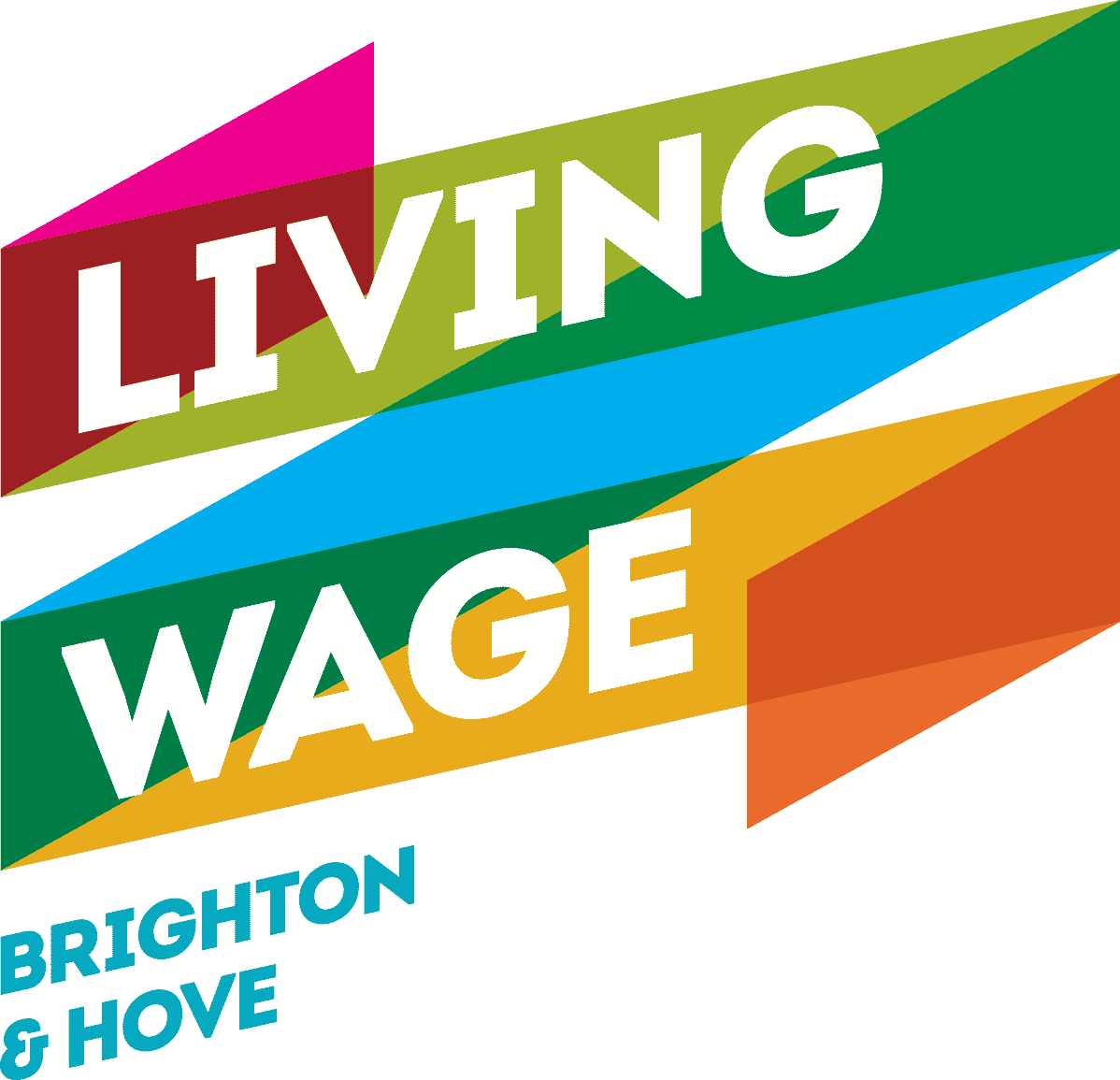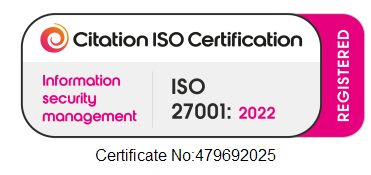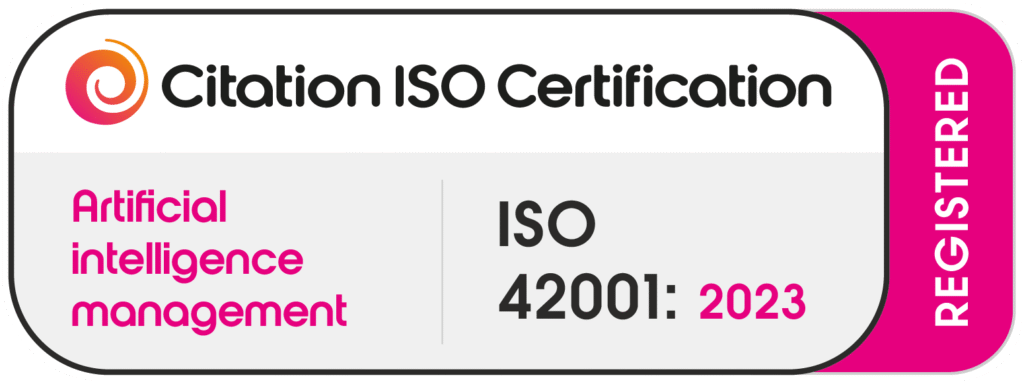PPC For Travel Industry
A guide for hotels and hostels.
In this guide, we’ll take you through some of our best PPC practices for hotels and hostels.
You’ll discover how to:
- Save Your Budget
- Increase Your Bookings
- Many More Tips & Tricks
So if you want to start getting a better ROI from your PPC marketing, then this guide is for you!

Chapter 1:
PPC Platforms
This chapter is all about PPC platforms and the best ways the travel industry can utilise them.
We’ll also be sharing how we increased conversion rate by 164% for a travel client through selecting the right platforms for our campaigns.

What's the best PPC platform for the Travel Industry?
It’s a question that we are always asking, no matter what industry we’re discussing. What is the best platform for running your PPC campaigns? Well, unfortunately there just isn’t a simple answer to this question. There are just too many comparisons that can be made between Google Ads, Facebook Ads, Instagram, Microsoft (and the list goes on), that it really is impossible to come up with an outright winner.
Here we have a classic case of comparing Apples to Oranges. Each PPC platform has its strengths and each has its weaknesses, but fundamentally they really are different platforms. We use Google much differently to how we use Facebook and this is why they are considered as separates (paid search & paid social) in PPC marketing. So this is where the first bit of advice comes:
Stop thinking about what’s best and start using them to their best.
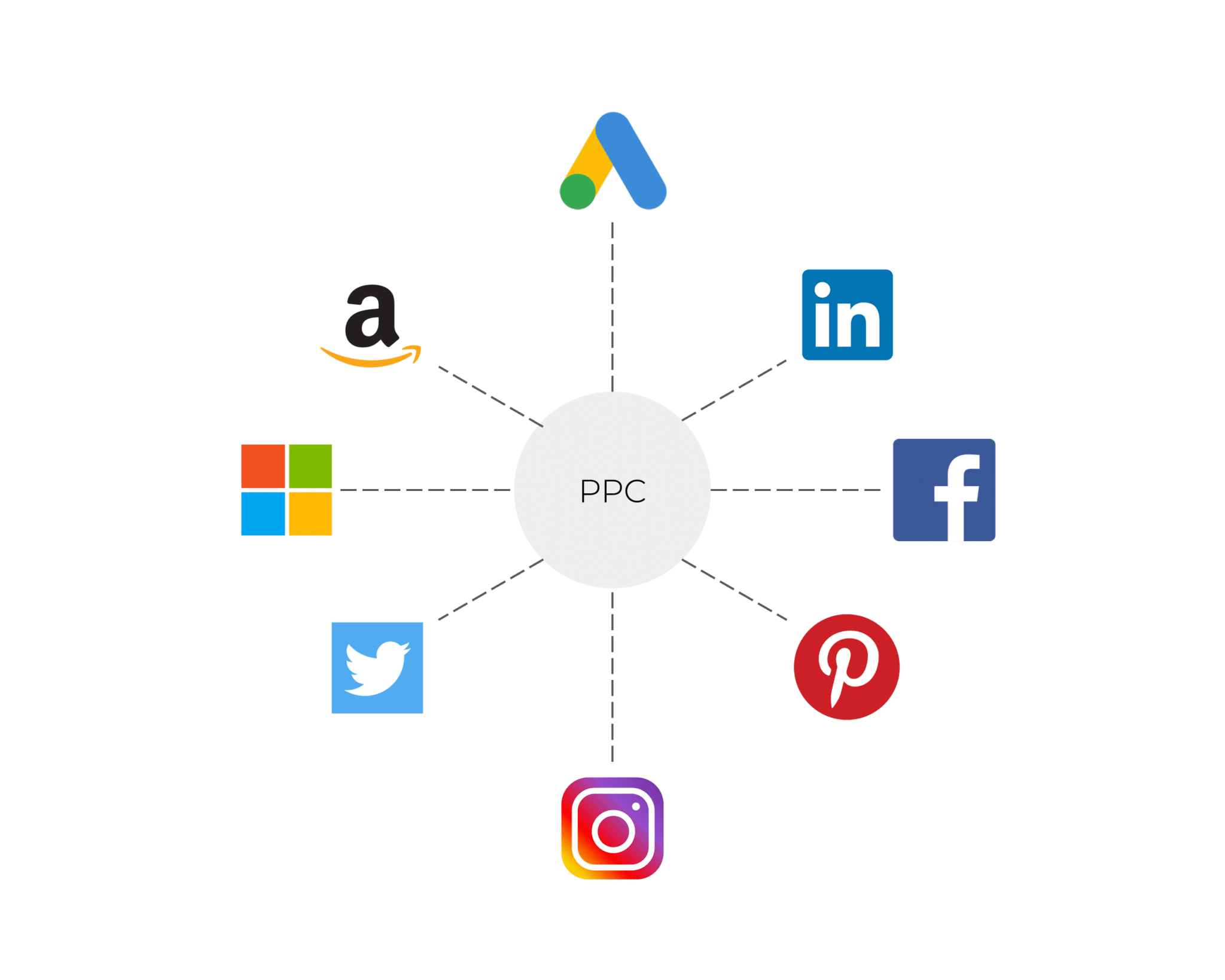
Your PPC Recipe
Or to put it another way:
Think of the PPC platforms as the ingredients and how you use them as the recipe.
You may decide to create your PPC cake with a lot of Google Ads but why not combine it with a sprinkle of Instagram? 😜

Source: Tumblr
Review what is best about each PPC platform and include it in your strategy if it aligns with your campaign goals.
For example, let’s make a brief comparison between Google Ads, Facebook Ads & Instagram Ads:
Google Ads
- Remarketing
- High Intent Customers
- Dominant Search Engine
- No Social Interaction
Facebook Ads
- Remarketing
- Custom Audiences
- Largest Social Media Platform
- Broad Targeting Options
- Mixed Customer Intent
Instagram Ads
- Remarketing
- Social Engagement
- Young Demographic
- Broad Targeting Options
- Mobile Only
We can make a decision about which platforms to use by analysing the pros and cons of each.
Multi-Platform Remarketing
Firstly, we can see that remarketing is possible across all 3 of these. This means that each platform here gives us the opportunity to re-engage with our customers.
This means that we can COMBINE these platforms for our remarketing campaigns.
This would be a great strategy because it increases your remarketing coverage. You are increasing your chances of reaching someone who has already expressed interest in your business, simply by increasing the amount of platforms you use.
A person could see your remarketing ad on the Google display network, but they could also see it on Facebook and Instagram. Giving you the best chance to increase your conversion rate.
High Intent Customers
But on the other hand, we can’t take this approach with every campaign. As we can see above, your Google Ads search campaign will be particularly suited to high intent customers. People who are at the bottom of the sales funnel and ready to purchase.
These types of campaigns are great for picking up bookings for people who are in situation.
Let’s say that John is in Brighton and he is looking for a hotel for the night.
John searches on his mobile for “Hotel in Brighton”.
Your Google search ad appears, John clicks on it, he sees your competitive price for a one night stay and he makes a booking (after seeing that breakfast is also included 😋).
Now this is something that only the Google Ads platform can provide (in this example). To put it simply, customers who are in market, in situation or are high intent can be reached best on Google Ads. People do not search on Facebook and Instagram in the same way because, well, that’s not the reason for which they were designed.
Utilising Paid Social
So what do Facebook and Instagram have going for them which Google does not? Well it’s the fact that they are fundamentally social platforms.
- They are highly visual
- Users can interact (comments & likes)
- They blend with organic posts
So, paid social is great for showing your potential customers what your rooms look like, what facilities you have and how amazing the pool looks… paid social helps you to sell the experience of your hotel or hostel.
Paid social can also be used effectively to target the right demographics. For example, let’s say you want to get more bookings for your hostel:
Your target audience is mainly 18-21 year olds who are doing some traveling.
If we consider that 75% of Instagram users the USA are 18-24 year olds, then it makes sense that we focus our advertising on the use of this platform.
In summary
You should select the PPC platforms you use by asking yourself one question:
What’s the best PPC platform to reach my target audience?
Budget
Remember to consider your budget when selecting your PPC platforms.
The more platforms you choose, the more budget you will need.
If you’re working with a limited budget, you may only be to run campaigns on one platform.
Don’t spread yourself too thin!
Travel Case Study: How does this look in practice?
Let’s take a look at how selecting the right PPC platforms can help you improve your PPC performance.
A real-life example:
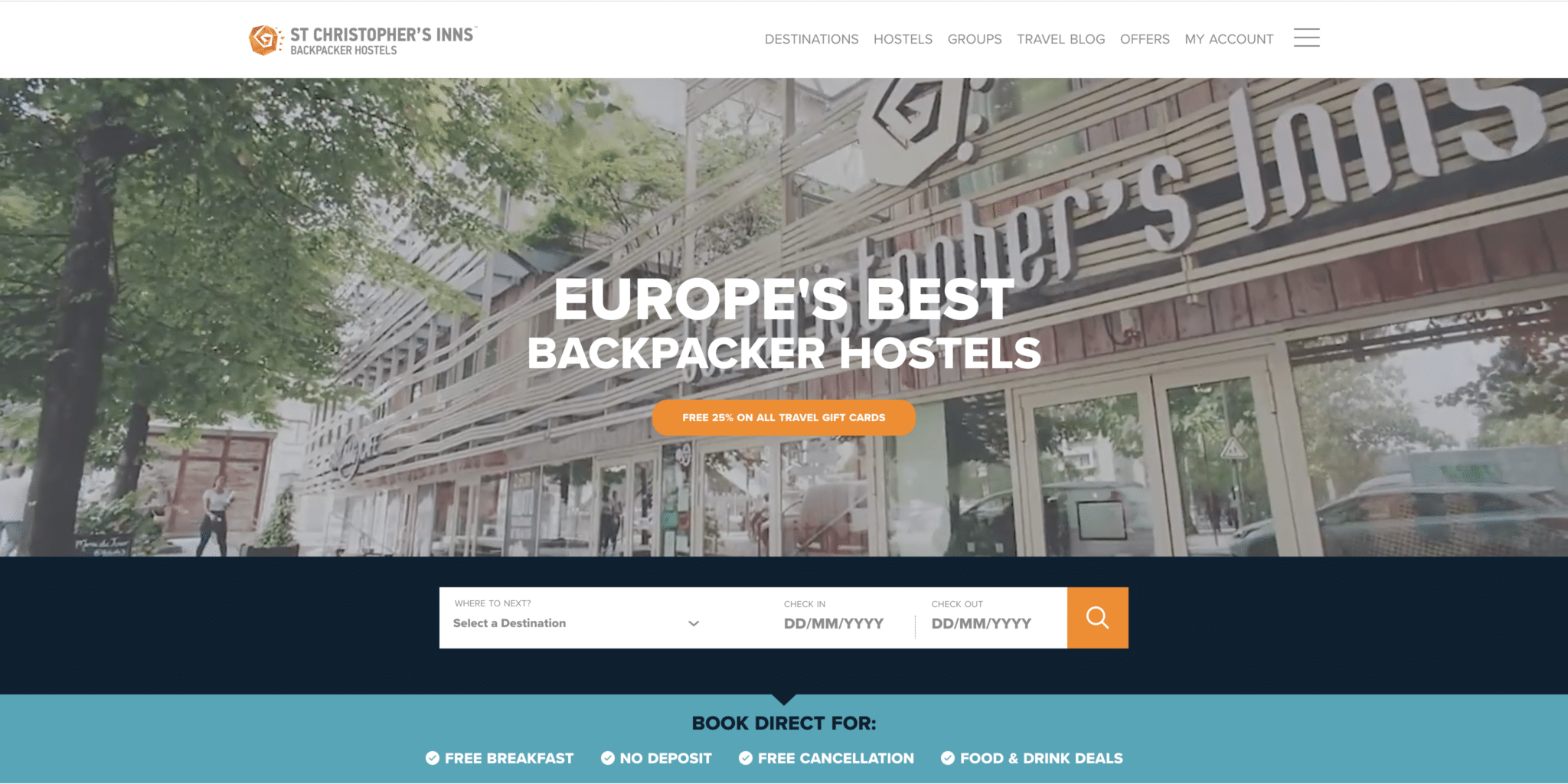
In our work with St Christopher’s Inns we were able to increase conversion rates by 164% by reviewing our PPC platform selection.
Platform Analysis
Previously, we had been doing a lot of PPC advertising on platforms such as Reddit and Taboola. We’d also been using Facebook and Instagram to do a lot of brand awareness to reach new visitors. However, we found that this part of our strategy was driving our conversion rates down and our costs up.
We decided to review the strategy and the first action we took was to simply review the PPC platforms we were advertising on.
We found that our activities on Taboola and Reddit were driving lots of new visitors but it was inconclusive as to whether these people went on to make a booking with us at a later stage. We were not convinced that we were finding our target audience on these platforms.
We also found that our broad targeting on Facebook and Instagram had quite low conversion rates compared to our remarketing campaigns which were performing very well.
Adjustments
After breaking down how and why we were using each platform, we finally decided to streamline our platform choice.
We decided to focus on Google Ads, Facebook Ads & Instagram.
Not only that, we decided to focus our use of Facebook and Instagram to remarketing purposes only.
We did this by building our more specific custom audiences based on how people interacted with our website. For example, we created more segmented audiences for people based on the location in which they were interested in booking.
Which looked like this:
A user visits Barcelona hostel page > goes on to > Audience: Barcelona – Last 7 days.
Then, this is segmented to last 14 days, 30 days, 60…etc.
We then targeted each of these audiences with location specific ads based upon the audience characteristics.
Results
After making these changes, we saw a sharp increase in our overall conversion rates. Particularly on Google Ads where we saw an increase of 164%.
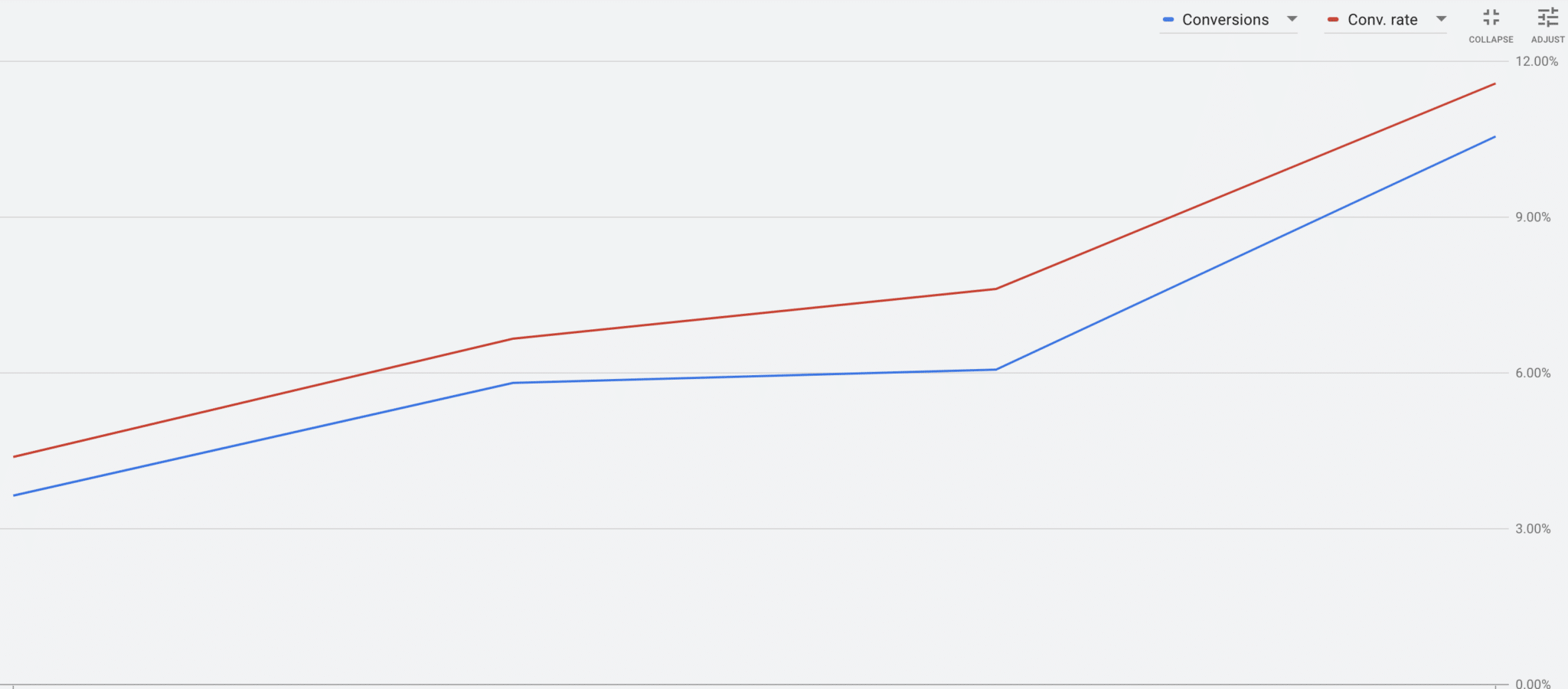
One of the key lessons here is that your actions on one platform can have a positive effect on another platform.
Chapter 2:
Keyword Strategy
In this chapter we explain how to approach your PPC keyword strategy.
You’ll learn how to stop wasting your budget and get more bookings. All by targeting the right keywords, in the right ways.

What keywords should I choose?
Deciding what keywords to target can be a difficult task. Not only are we going to be looking at the competition but also the search volume. We also need to consider how much this keyword is going to cost us.
Let’s say you’re starting from scratch. Get yourself a new Google sheets or excel file and start listing all the keyword ideas that come to your head.
In this instance we’ll pretend that we run a hotel in Brighton.
We’re setting up our first Google Ads PPC campaign.
Your list may start to look a little something like this:
- Hotel In Brighton
- Brighton Hotels
- Affordable Hotel Brighton
- B&B In Brighton
- Seaside Hotel In Brighton
Then copy your list and insert it into the Google Ads keyword planner.

Keyword planner will then give you back some projections with the average monthly search volume, the current competition of your inputted keywords and some bidding estimates.

It will also give you some new keyword ideas based upon the ones you have entered.
Now we could easily just add these keywords into our campaigns and get started, but that would be a sure way to waste our budget!
Instead, we need to use what Google give us to decide how to target these keywords.
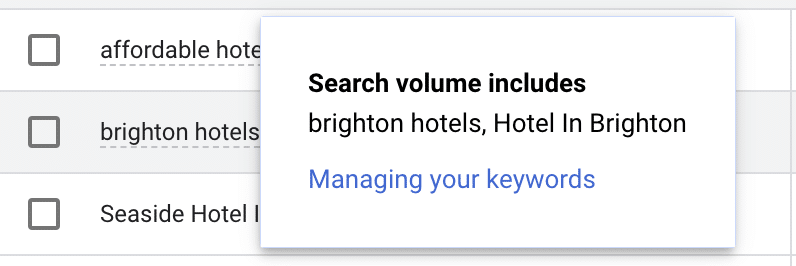
If we hover over the “brighton hotels” keyword in our list, we can see that Google is including our keyword “Hotel In Brighton” here. Google is combining this search volume with other similar searches and giving us back an average monthly figure.
Google is telling us that for this term, we will need to bid around and above £1.28 to get the top positions.
It’s also telling us that the average search volume is high.
So we need to consider the cost of this bid and the amount of search volume and ask ourselves:
What are the risks & rewards for this keyword?
Well, one risk that there is a lot of traffic and a moderately expensive keyword. Therefore, this keyword has the potential to spend a lot of our budget.
But, one reward or opportunity is that it has a lot of search volume. Therefore, there is a lot of potential traffic for us to capitalise on and turn into bookings.
Keyword Match Types
We can then decide on how to target this keyword based on our risk and reward evaluation.
Considering the risk we outlined above, it would not make any sense to target this keyword as a broad match keyword. This match type would allow Google to show our ads for many different variations of our keyword. This would mean that we could quite easily waste a lot of budget on showing our ads for searches that were not totally relevant.
But as highlighted as the reward, there is still lots of traffic here which we don’t want to miss out on.
How can we target this traffic while keeping control over the less relevant searches?
Use exact or phrase match types for our keywords.
This will ensure that we will limit Google’s ability to show our ads for broader searches.
A quick lesson in:
Keyword Match Types
Keyword match types help to tell Google which searches it can show your ad for.
You can use match types strategically to control your spend and targeting.
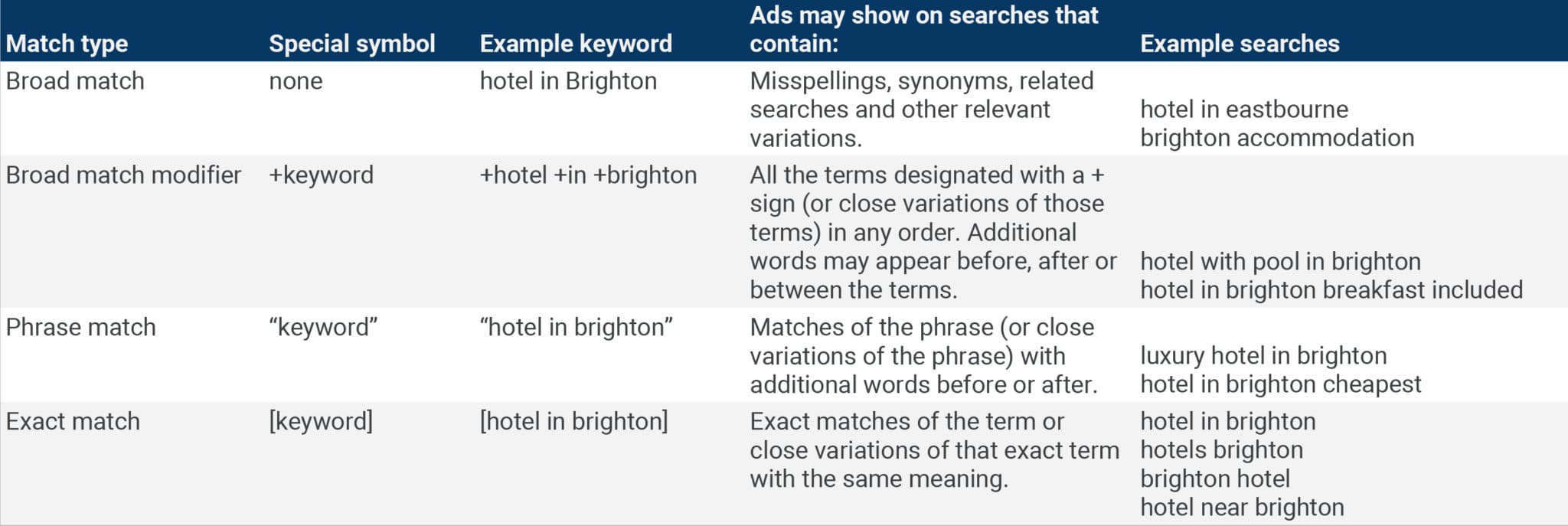
Exact & Phrase Match Types
This is an especially good approach if your trying to advertise your hotel or hostel with a limited budget. It will ensure that you keep a tighter control on what searches your ads will appear for.
However, be careful not to duplicate keywords. Double check that your phrase and exact match variations are not being triggered by the same search terms.
Broad Match Modifier Match Type
If you have a budget which is a bit more flexible then you can also start to think about including broad match modifier keyword match types.
For example you may choose to include:
+hotel +brighton
This will tell Google to show your ads for broader searches but with some limitations. This gives you an element of control on your broad keywords because it specifies that your ad will only show if the the search query includes all of the specified keywords.
This helps you to save budget by not showing your ads for the most broad and irrelevant searches.
With the above keyword, your ad could be shown for searches like:
- Cheap hotel brighton
- the best hotel in brighton
- 5 star hotel in brighton
- Seaview hotel in brighton
But your ad could also show for the following searches:
- 1 star hotel brighton
- the worst hotel in brighton
- 24/7 party hotel in brighton
- city centre hotel in brighton
So if you are using the broad match modifier keyword, your ads can appear for longer search queries but they may also appear for non-desirable search queries.
How do we stop this from happening?
Well this is where negative keywords come in.
Negative Keywords
Negative keywords tell Google what not to show your ads for.
So if you run a high-end, fancy hotel that focuses on attracting an exclusive clientele, you may not want to be showing your ads for some of those terms mentioned above:
“24/7 party hotel brighton”. (Maybe, not your desired guest? 😬).
In this case, we would need to add some negative keywords to the ad group that contains this keyword.
Or, if it’s a negative that applies to other campaigns you can add it to your campaign on the account level.
We recommend that if your adding one word negative keywords such as: “worst, cheap, bad, dirty, etc”, then add them as broad match negative keywords (yes, negative keywords have match types too!).
If you’re adding two or more words as a negative keyword, then add them as a phrase match. Keywords such as “the worst”, “1-star”, “24/7 party”, etc.
We find that this combination has helped to get our negative keyword lists working effectively. However, it may not always be appropriate to only use the broad and phrase match keywords so keep this in mind when developing your own negative keyword lists.
Keyword Strategy Summary
Let’s quickly summarise what we’ve discussed and the way you should approach your keyword strategy.
Start by generating a big list of possible keywords. Use keyword planner to generate additional keyword ideas. Then, refine this list by reviewing the keyword planner projections and how this fit with your business and budget.
Make a final decision on your targeted keywords by weighing up the risks and rewards. Ask yourself whether this keyword has the potential to spend a lot of budget, or is it very high intent traffic?
Choose the right match type to target based upon your campaign goals and budget. Can you take advantage of the rewards you’ve identified by using a certain match type? Can you have more control on a certain keyword by using a specific match type?
If you use some broad match modifier keywords (BMM) then make sure you also add in some negative keywords to stop your ads from appearing for undesirable searches.
Increase your bookings with highly targeted and well developed keyword strategies.
If you follow the advice above, your keywords will be highly relevant to the high intent traffic. You will also be doing a good job of not showing your ads to irrelevant traffic.
Chapter 3:
Location Targeting
The location targeting chapter covers what you need to know when setting up and choosing your targeted locations.
You will learn the best practices for targeting the locations around your hotel or hostel.

Local Location Targeting
Let’s start with the location targeting that is directly related to where our hotel or hostel is….well….located.
We’re talking about the actual address of your hotel or hostel.
One of our location targeting priorities is to get your business showing ads in the town or city where is is based.
Not only is this so you can quite literally, “put yourself on the map”, but it is also because you have lots of potential high-intent traffic you can appear for.
Remember John? …he was looking for a hotel in Brighton.
To use this example again:
If John is in Brighton, looking for a hotel for the night, he is searching on his mobile for hotels in Brighton.
John is a high-intent searcher. He is looking for accommodation for tonight. He’s ready to book.
We need to make sure that John sees our ad – by targeting the local area directly around your business, you are going to put yourself in the best position possible to pick up this online foot traffic.
Now think of all the other “John’s”, Steve’s, “Jane’s” and “Karen’s” that will be looking for quick, same-night accommodation throughout the year.
That adds up to lots of potential bookings.
All we have to do is make sure that they see our ad by targeting the local area.
Setup Your Radius
In Google Ads, if you haven’t already, you should be thinking about splitting your campaigns by the locations that they are targeting.
This way, you can have a local campaign, a regional and even national campaign.
For the above example, we would have a campaign called Brighton | Hotel. This firstly refers to the location that we are targeting and secondly, the type of keywords we’re using.
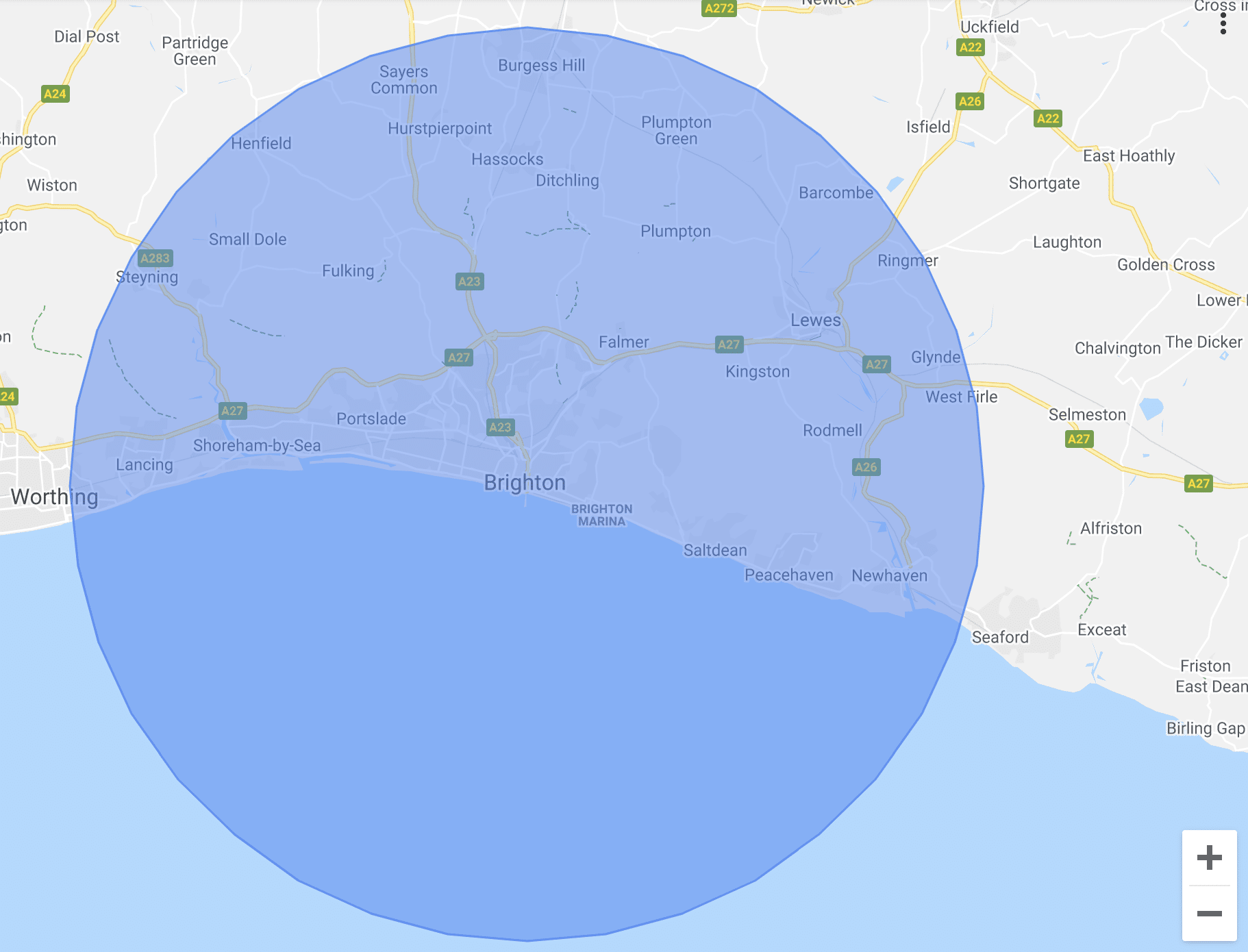
Select your campaign and go to your location settings in Google Ads.
Select the “Radius” option and type in your business address. Select the radius distance and when you’re happy, select “Target”.
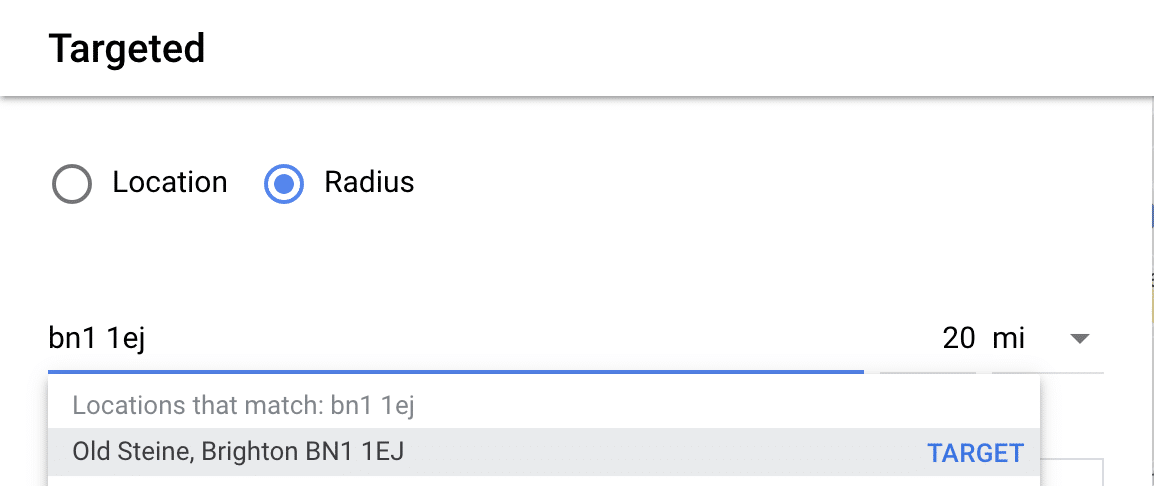
This will target the radius around your hotel.
Now, whenever anybody searches for the keywords included in this campaign and they are within that radius, your ad will be shown.
Devices
Top Tip
Mobile Only Campaign
Consider the device that your audience will be searching on.
If they are out and about, they will most likely be searching on their smartphone or mobile device.
Therefore, for your local campaign, you could target mobile devices only, or use device level bid adjustments to set your bidding priorities.
Multiple Locations
But what about if you have multiple locations all under the same brand?
For example let’s say that in addition to our Brighton hotel, we also have hotels in Barcelona and Paris.
Well, you can take the same approach as the local targeting, you just need to change your keywords and further consider your target audience.
It’s always best to separate your campaigns based on your goal and the location your targeting.
So you could have campaigns called:
Barcelona | Hotel
Paris | Hotel
Brighton | Hotel
You may also need to consider running some keywords and ads in the native language of where you’re advertising.
But you may wish to continue your use of English if you get a lot of bookings from English speaking guests.
National & International Location Targeting
What about if you want to advertise your hotel across the country or internationally?
We’ll pretend that we are trying to advertise our Brighton hotel to potential guests from all around the United Kingdom.
This would require us to draw on what we learned in the Keyword Strategy chapter.
It’s all in the keywords and their match types – as long as you select the right combinations for your budget and goals, you will be able to keep a tight control on your ROI.
If you are implementing a national campaign, make sure all of your keywords are location specific and start out with using either the exact match type or phrase match type.
Then after some testing, if you feel as if your budget will allow you to expand, you could try introducing some broad match modifier match type keywords.
You could start out targeting the whole of the UK with the following keywords:
[hotel in brighton]
[luxury hotel in brighton]
[city centre hotel in brighton]
(and so on…)
As you’ll see above, these are all exact match types (as shown by the [ ] brackets).
If you start out using exact match types only, you will have more control over what your ads will show for. This will avoid you wasting budget on broader search terms from across the country.
FAQ
Summary
Each PPC platform has different strengths and weaknesses. It’s all about choosing the right platform that will work best for your campaign goals. Instead of asking what’s the best ppc platform, try asking yourself what the best PPC platform is for reaching your targeted audience.
Increase your online bookings by making sure you have the right keyword strategy in your most local area. This will make sure that you are picking up that online foot traffic throughout the year. You should also focus on having a mobile-friendly booking system.
Reduce your advertising costs by reviewing your keyword strategy and location targeting. Reduce the number of broad match keywords you are running in favour of exact match types, especially if they are in combination with broad location targeting.
Focus your investment on to your keywords and ads that perform the best. Reduce your spend on keywords that do not generate many bookings. Optimise towards the strengths in your account and speak to a PPC consultant if you need a more in depth review of your performance and data.



